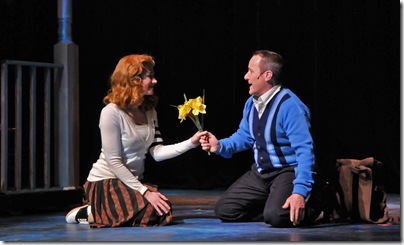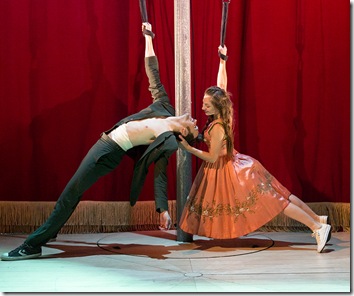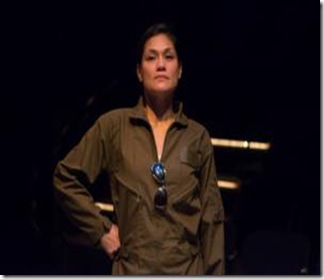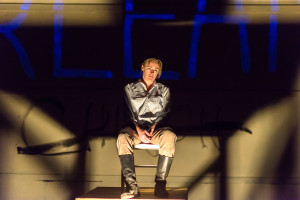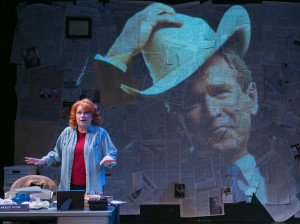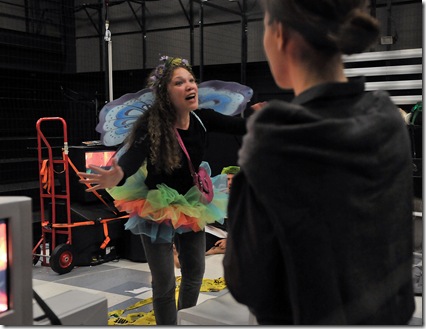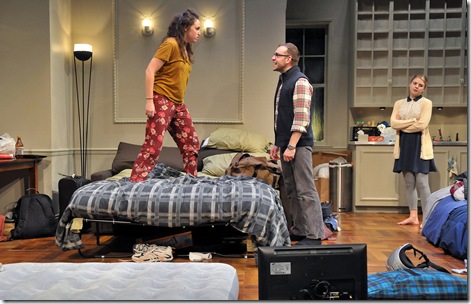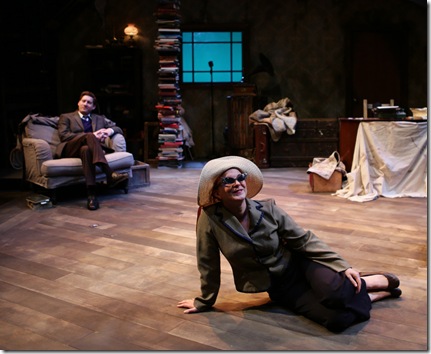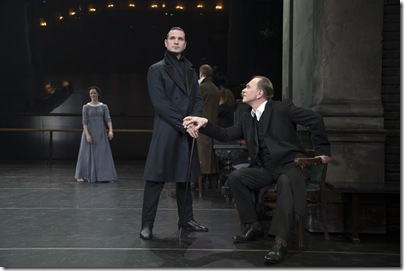Big Fish Downsized by SpeakEasy Company Rises to the Challenge
Photo: Craig Bailey, Perspective Photo. Aimee Doherty and Steven Goldstein.
Big Fish now playing at Boston’s Calderwood Pavilion is the third dramatized version of Daniel Wallace’s magical realist novel, all adapted by John August over many years. As a movie, directed by Tim Burton, its whimsy appealed to a certain audience base. August, a playwright as well as a script writer, decided it had the makings of a musical and teamed up with composer Andrew Lippa. Ten years later, Big Fish opened on Broadway to mixed reviews. Critics found it lavish, opulent and, in some cases, overdone. Despite its fans, the production closed within a few months.
August and Lippa’s belief in the show’s possibilities brought them to Boston and SpeakEasy’s artistic director Paul Daigneault, known for his skill with musicals. All three artists were committed to simplifying the show, emphasizing its Alabama roots, deemphasizing the Broadway pizzazz, and making Edward Bloom (Stephen Goldstein) more understandable, and his son Will (Sam Simahk) more sympathetic.
